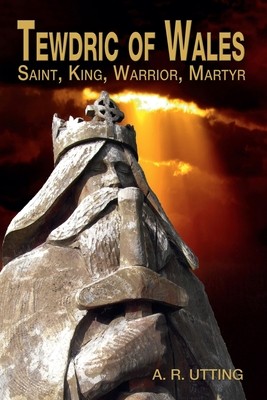
- We will send in 10–14 business days.
- Author: A R Utting
- Publisher: Choir Press
- ISBN-10: 1789630967
- ISBN-13: 9781789630961
- Format: 15.2 x 22.9 x 1 cm, minkšti viršeliai
- Language: English
- SAVE -10% with code: EXTRA
Reviews
Description
St. Tewdric was a warrior king who drove English invaders out of Wales in a battle at Tintern, around AD 600. He lived as a Christian hermit and in old age came out of retirement to lead his troops. He was wounded in the battle and died three days later. His remains lie in his own church at Mathern near Chepstow. He passed on his kingdom to his son, Meurig, in a state of peace, justice and prosperity, maintained by King Meurig for his reign of more than 30 years.
St. Tewdric was the inspiration for an early opera, written and performed by students for the Priesthood at St. Omers seminary, some of whom were caught up in the fictitious claims, outright lies, and bloody injustices of 'The Popish Plot' of 1678-1680, a politically contrived attempt to topple King Charles II.
St. Tewdric is part of the foundations of Wales. He settled the Welsh frontier upon the River Wye, where it remains to this day.
Tewdric of Wales looks at how Tewdric defended his people as a kingly ruler during the so-called 'Dark Ages' which followed the collapse of the Roman Empire, and left Meurig a viable kingdom which functioned well until swept away by the Norman invasion, - a full 400 years later.
It will appeal to all - whether Welsh or not - who have ever wondered what happened during those times, and will also be useful for students and others seeking sound information about the 'Dark Ages' in general.
They were not as 'dark' as is often supposed! This book suggests why, and shows up a few parallels with our own times which may cause a wry smile here and there.
EXTRA 10 % discount with code: EXTRA
The promotion ends in 22d.06:00:35
The discount code is valid when purchasing from 10 €. Discounts do not stack.
- Author: A R Utting
- Publisher: Choir Press
- ISBN-10: 1789630967
- ISBN-13: 9781789630961
- Format: 15.2 x 22.9 x 1 cm, minkšti viršeliai
- Language: English English
St. Tewdric was a warrior king who drove English invaders out of Wales in a battle at Tintern, around AD 600. He lived as a Christian hermit and in old age came out of retirement to lead his troops. He was wounded in the battle and died three days later. His remains lie in his own church at Mathern near Chepstow. He passed on his kingdom to his son, Meurig, in a state of peace, justice and prosperity, maintained by King Meurig for his reign of more than 30 years.
St. Tewdric was the inspiration for an early opera, written and performed by students for the Priesthood at St. Omers seminary, some of whom were caught up in the fictitious claims, outright lies, and bloody injustices of 'The Popish Plot' of 1678-1680, a politically contrived attempt to topple King Charles II.
St. Tewdric is part of the foundations of Wales. He settled the Welsh frontier upon the River Wye, where it remains to this day.
Tewdric of Wales looks at how Tewdric defended his people as a kingly ruler during the so-called 'Dark Ages' which followed the collapse of the Roman Empire, and left Meurig a viable kingdom which functioned well until swept away by the Norman invasion, - a full 400 years later.
It will appeal to all - whether Welsh or not - who have ever wondered what happened during those times, and will also be useful for students and others seeking sound information about the 'Dark Ages' in general.
They were not as 'dark' as is often supposed! This book suggests why, and shows up a few parallels with our own times which may cause a wry smile here and there.


Reviews